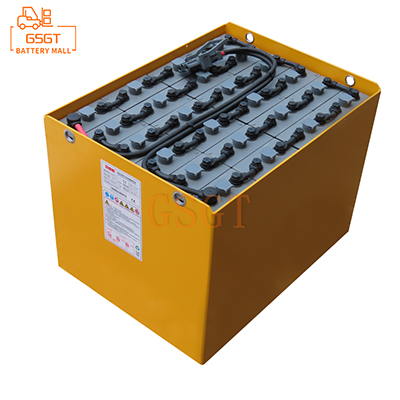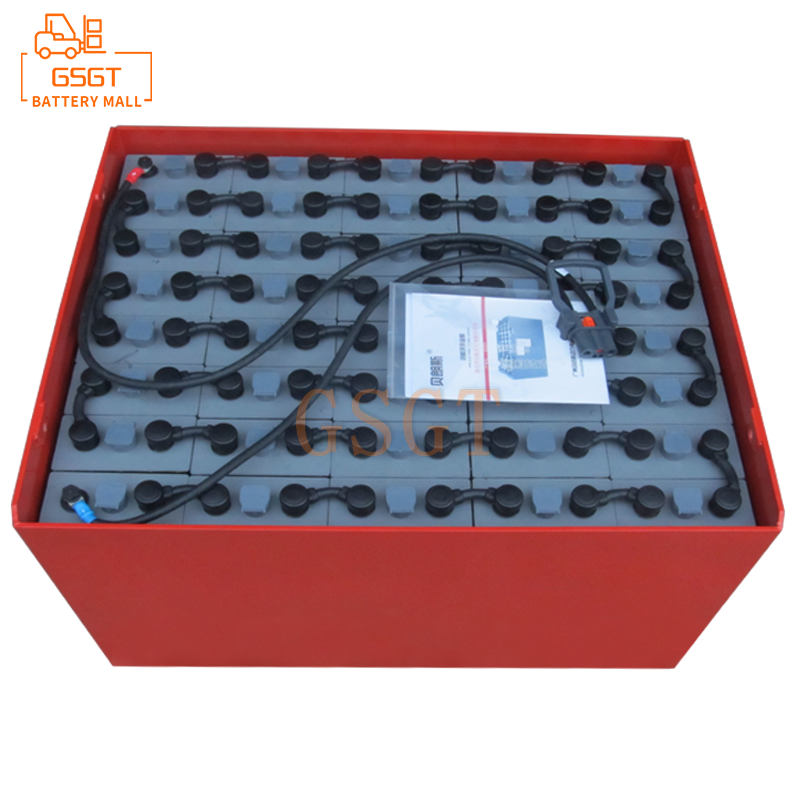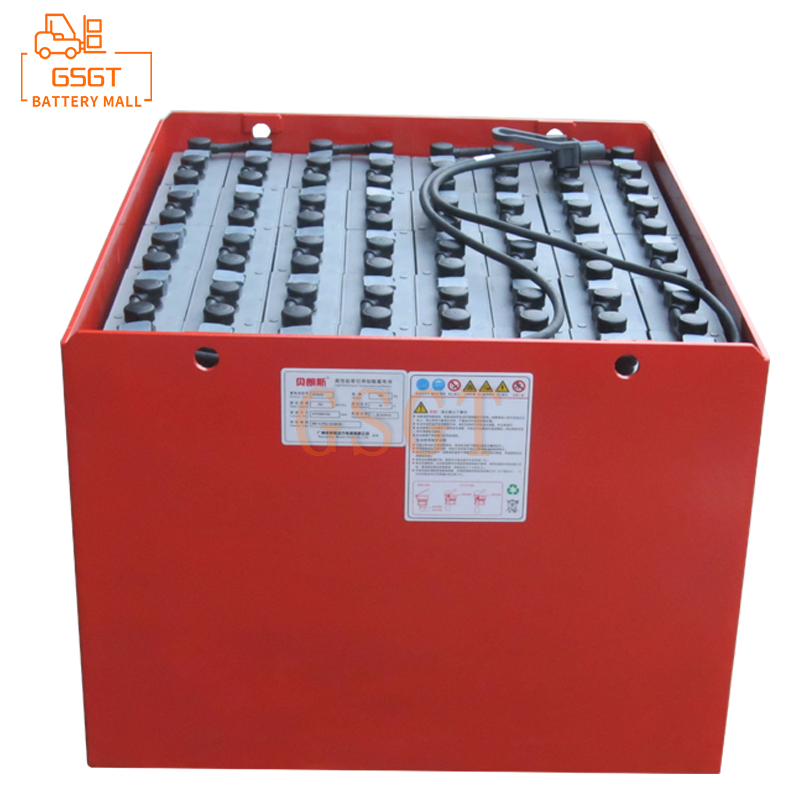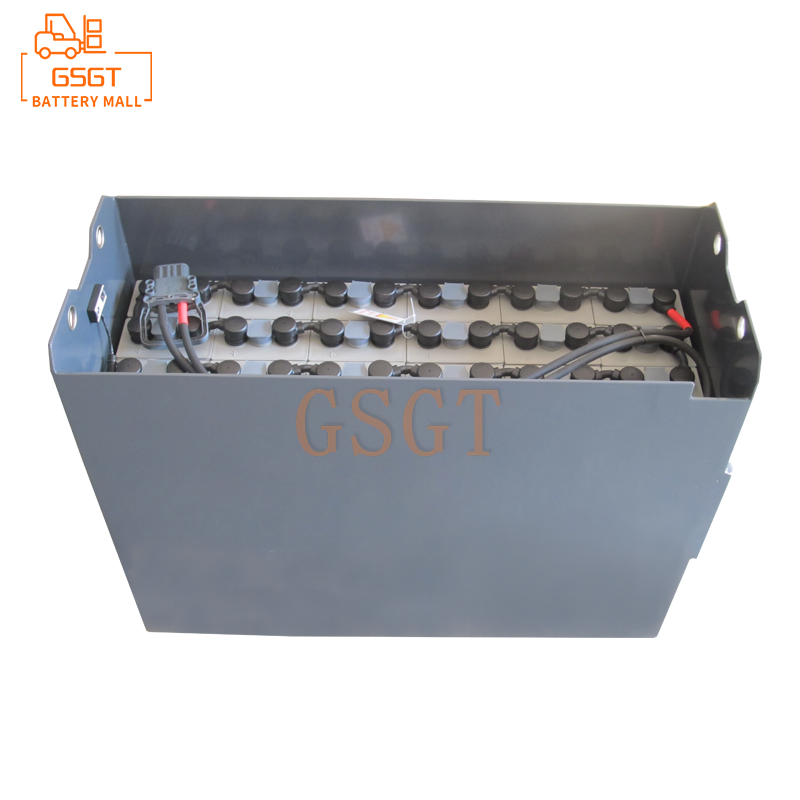Time:2025-04-09 10:38:52
Browse:670
1. Introduction
Under the background of increasing global environmental awareness and increasingly strict environmental regulations, the forklift lead-acid battery industry is facing unprecedented challenges and opportunities. Forklift is widely used in the industrial field of material handling equipment, its power source - lead-acid battery production, use and recycling process has an important impact on the environment. The introduction of new environmental regulations aimed at reducing pollution, promoting resource recycling and achieving sustainable development has prompted the forklift lead-acid battery industry to undergo profound changes to adapt to new environmental requirements and seek long-term development. It is of vital practical significance for enterprises in the industry to grasp the development direction, enhance competitiveness and realize green and sustainable development to explore the transformation strategies of the industry under the new environmental protection regulations.
2.The impact of new environmental protection regulations on the forklift lead-acid battery industry
(1) Strict restrictions on production links
The new environmental protection regulations set extremely strict standards for pollutant emissions in the production process of lead-acid batteries for forklifts. In terms of exhaust emissions, the concentration and total amount of pollutants such as lead smoke and sulfuric acid fog are strictly limited. Enterprises need to invest a lot of money to purchase advanced waste gas treatment equipment, such as the use of efficient acid fog purification tower, cloth bag dust collector, etc., to ensure that the exhaust gas emission standards. In terms of wastewater treatment, lead-containing and acid-containing wastewater generated in the production process must undergo multiple treatment processes to meet stringent discharge standards before discharge. This requires companies to build complex and costly wastewater treatment facilities, including neutralization, precipitation, filtration and other links. In addition, the new regulations also put forward higher requirements for the environmental management of the production workshop, such as strengthening the ventilation of the workshop and preventing material leakage, which undoubtedly increases the production cost and management difficulty of the enterprise.
(2) Mandatory requirements for recycling
Waste forklift lead-acid batteries contain a lot of harmful substances such as lead and sulfuric acid, which will cause serious pollution to soil and water sources if improperly disposed. The new environmental protection regulations clearly require the establishment of a sound waste lead-acid battery recycling system, and enterprises need to assume the corresponding recycling responsibility. On the one hand, enterprises should cooperate with professional recycling enterprises to ensure that waste batteries can be properly recycled; On the other hand, some qualified enterprises also need to establish their own recycling networks and processing facilities. For example, companies need to set up recycling outlets to collect used batteries and then transport them to processing centers via specialized transport vehicles. In the treatment center, it is necessary to adopt advanced technology to effectively separate and recycle lead, sulfuric acid and other substances, so as to realize the recycling of resources, reduce the dependence on original resources, and reduce the risk of environmental pollution.
(3) The increase of market access threshold
The new regulation raises the threshold for market access by setting a series of strict criteria to screen companies in the industry. Enterprises must have a sound environmental protection facilities and management system, in the production process, product quality and environmental performance to meet the requirements, in order to obtain production licenses and market access qualifications. For some small, backward technology and environmental substandard enterprises, it is difficult to bear the high cost of environmental protection transformation, unable to meet the requirements of the new regulations, can only be forced to withdraw from the market. Large enterprises, with their capital, technology and scale advantages, are more able to carry out environmental protection upgrading, so as to occupy a favorable position in the market competition, which will promote the industry concentration to further improve.
3.Forklift lead-acid battery industry status analysis
(1) Industry scale and market share
At present, the forklift lead-acid battery industry has formed a large scale in the world. In China, many enterprises participate in the production and sales of forklift lead-acid batteries, and the market competition is more fierce. Some large enterprises with brand advantages, technical strength and perfect sales network, occupy a large market share. However, there are also a large number of small enterprises in the industry, product quality is uneven, and market competition shows a diversified pattern. From the perspective of application, forklift lead-acid batteries are widely used in logistics warehousing, manufacturing and other industries, with the development of these industries, the market demand for forklift lead-acid batteries has maintained a relatively stable growth trend in a certain period of time.
(2) Technical level and innovation capability
In terms of technology, the current forklift lead-acid battery technology is relatively mature, but compared with emerging battery technology, there is a certain gap in energy density, charging speed, service life and so on. Some enterprises in the industry have invested certain resources in technological innovation, and are committed to developing new lead-acid battery technology, such as lead-carbon batteries, to improve product performance. Some enterprises improve the charge and discharge efficiency and cycle life of the battery by improving the production process, using new plate materials and electrolyte formulae. However, overall, the industry's technological innovation ability still needs to be further improved, some enterprises are limited by capital and technical talent, slow progress in technology research and development, it is difficult to meet the market demand for high-performance products.
(3) Environmental protection status and challenges
Although enterprises in the industry have recognized the importance of environmental protection, before the introduction of new environmental regulations, some enterprises still have shortcomings in environmental protection measures. Some small enterprises have outdated production equipment and simple environmental protection facilities, which cannot effectively deal with the pollutants generated in the production process, resulting in prominent environmental pollution problems. In terms of waste battery recycling, although some recycling channels have been established, the recycling system is not perfect, and there are problems such as low recycling efficiency and low recycling rate. A large number of used batteries flow into illegal dismantling channels, which not only causes a waste of resources, but also poses a serious threat to the environment. The implementation of new regulations on environmental protection has made these environmental problems more prominent, and enterprises are facing huge pressure on environmental protection transformation.
4.Forklift lead-acid battery industry transformation strategy
(1) Technological innovation promotes product upgrading
1. ** Research and development of new lead-acid battery technology ** : Enterprises should increase research and development investment, actively carry out research on new lead-acid battery technology, such as in-depth study of lead-carbon battery technology, by adding activated carbon and other materials in the negative electrode, effectively improve the battery charging and discharging performance and cycle life. At the same time, new electrode materials and electrolyte formulations are explored to improve the energy density of the battery, so that the forklift can have a longer driving range when using the same volume or weight of the battery.
2. ** Improve the intelligent level of the battery ** : The introduction of intelligent technology for forklift lead-acid batteries equipped with intelligent management system. The system can monitor the battery power, voltage, temperature and other parameters in real time, and carry out intelligent charge and discharge control according to these data to avoid overcharge or overdischarge of the battery and extend the service life of the battery. By connecting with the control system of the forklift, it can also optimize the power system of the forklift and improve the energy efficiency.
3. ** Strengthen industry-university-research cooperation ** : Enterprises in the industry should actively establish close cooperative relations with universities and scientific research institutions to jointly carry out technology research and development projects. With the help of the scientific research strength of universities and scientific research institutions, we can break through the technological bottleneck and accelerate the transformation and application of technological innovation achievements. For example, enterprises can jointly set up research and development centers with universities to tackle key technical issues of lead-acid batteries and promote the overall improvement of the technical level of the industry.
(2) Optimize the production process to achieve cleaner production
1. ** Advanced production technology ** : Eliminate backward production technology, the introduction of advanced automated production equipment and technology. For example, the use of continuous, automated plate production processes can reduce material waste and pollutants in the production process. By optimizing the production process, we can achieve accurate control of the production process, improve the stability of product quality, and reduce energy consumption and environmental pollution.
2. ** Strengthen pollution control in the production process ** : In the production process, strengthen the treatment of waste gas, wastewater, waste residue. Install efficient waste gas purification equipment, deep purification treatment of lead smoke, sulfuric acid fog and other waste gas, to ensure that the discharge standards. Improve the wastewater treatment system, adopt advanced wastewater treatment technology, realize the recycling of wastewater, and reduce the use of fresh water. For the waste generated in the production process, it is necessary to collect and treat the waste, realize the recycling of resources, and reduce the discharge of waste.
3. ** Implementation of green supply chain management ** : Starting from the procurement of raw materials, select suppliers with good environmental performance and reliable quality. The raw materials provided by suppliers are required to meet environmental standards and reduce the environmental impact of raw materials in the production process. In terms of product packaging, degradable and recyclable packaging materials are used to reduce the environmental pollution of packaging waste. Through cooperation with upstream and downstream enterprises, jointly promote the green development of the entire supply chain.
(3) Build a sound recycling system
1. ** Establish a recycling network ** : Enterprises should cooperate with professional recycling enterprises, dealers, etc., to jointly establish a wide coverage of waste forklift lead-acid battery recycling network. Recycling outlets are set up in logistics parks, industrial parks and other places where forklift trucks are used to facilitate users to return used batteries. By providing door-to-door recycling services and giving users certain recycling subsidies, we can improve the enthusiasm of users to participate in recycling and improve the recovery rate of used batteries.
2. ** Optimize the recycling process ** : Standardize the recycling, transportation, storage and treatment process of waste batteries. The use of professional transport vehicles to ensure the safety of waste batteries in the transportation process, to prevent leakage caused by environmental pollution. Establish standardized storage facilities, and properly keep recycled waste batteries. In the treatment process, the use of advanced recovery technology, such as fire metallurgy, hydrometallurgy, etc., the lead, sulfuric acid and other substances for efficient recovery and utilization, improve the recovery rate of resources, reduce the recovery cost.
3. ** Promote the development of recycling industry ** : Encourage enterprises to invest in the construction of waste battery recycling and treatment facilities to form a large-scale recycling industry. Through technological innovation and industrial upgrading, improve the technical level and economic benefits of recycling industry. Strengthen the supervision of the recycling industry, standardize the market order, crack down on illegal recycling and dismantling behavior, and ensure the healthy development of the recycling industry.
5. Conclusion and prospect
The new environmental protection regulations have brought serious challenges to the forklift lead-acid battery industry, but at the same time, they also provide opportunities for the transformation and upgrading of the industry. Through technological innovation to promote product upgrading, optimize production processes to achieve cleaner production and build a sound recycling system and other transformation strategies, enterprises in the industry can effectively respond to the requirements of the new regulations and enhance their competitiveness. Looking forward to the future, with the continuous improvement of environmental protection requirements and the continuous growth of market demand for high-performance products, the forklift lead-acid battery industry will develop in the direction of green, intelligent and efficient. Enterprises should continue to increase innovation investment, and constantly improve their own environmental protection and recycling system, in order to adapt to the development trend of the industry, and achieve long-term development in the fierce market competition.

$3405

$8165

$9980

$2040

MESSAGE
Professional And Efficient
Security
Affordable Price
Professional Services